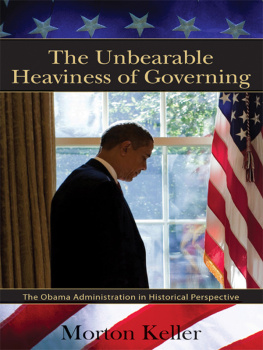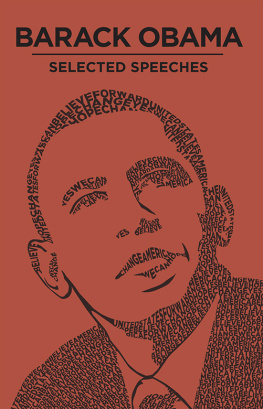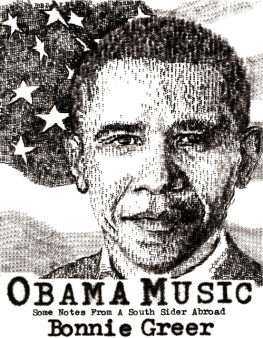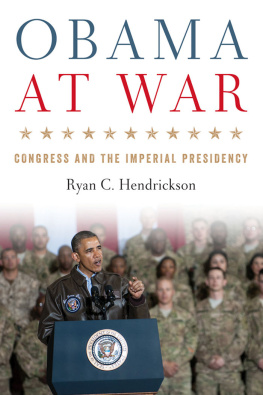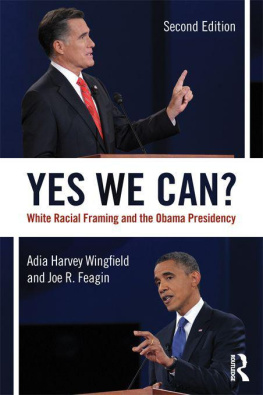The Hoover Institution on War, Revolution and Peace, founded at Stanford University in 1919 by Herbert Hoover, who went on to become the thirty-first president of the United States, is an interdisciplinary research center for advanced study on domestic and international affairs. The views expressed in its publications are entirely those of the authors and do not necessarily reflect the views of the staff, officers, or Board of Overseers of the Hoover Institution.
www.hoover.org
Hoover Institution Press Publication No. 601
Hoover Institution at Leland Stanford Junior University, Stanford, California, 943056010
Copyright 2010 by the Board of Trustees of the Leland Stanford Junior University
All rights reserved. No part of this publication may be reproduced, stored in a retrieval system, or transmitted in any form or by any means, electronic, mechanical, photocopying, recording, or otherwise, without written permission of the publisher and copyright holders.
First printing 2010
16 15 14 13 12 11 10 7 6 5 4 3 2 1
Manufactured in the United States of America
The paper used in this publication meets the minimum
Requirements of the American National Standard for Information
SciencesPermanence of Paper for Printed Library Materials,
ANSI/NISO Z39.481992.

Cataloging-in-Publication Data is available from Library of Congress
ISBN-13: 9780-817912642 (cloth. : alk. paper)
ISBN-13: 9780-817912666 (e-book)
FOREWORD
THE HOOVER INSTITUTION has embarked on a working group to assess some of the critical junctures we have experienced in American government and politics, which seem to have evoked dramatic changes set in motion by the 2008 election. The objective is to call on political scientists and historians to address the unfolding policy agendas of government, the politics of policy, and the growth of the administrative state. The Unbearable Heaviness of Governing: The Obama Presidency in Historical Perspective is the first endeavor to emerge from the group's efforts.
The current membership of the working group includes David Brady, Morris P. Fiorina, Morton Keller, and James Q. Wilson. Future efforts of the group are forthcoming.
John Raisian
Tad and Dianne Taube Director,
Hoover Institution, Stanford University
Introduction
DURING HIS Harvard student days, humorist Robert Benchley, in a hung-over state, confronted a diplomatic history exam. It asked him to discuss the Newfoundland fisheries dispute. This topic has been exhaustively examined from the viewpoint of the United States, Great Britain, and Canada, he began. I shall discuss it from the viewpoint of the fish.
Now that we are well and truly into the Obama years, it is time for a progress report that rests less on the day-to-day perspective of most pundits and politicians and more on the longer (if often tunnel-visioned) perspective of history: that sea of time and change in which we citizen-fish swim.
In the course of writing this book, I came to realize that I was confronted by a dilemma, encountered by every president, that is the precise antithesis of the one explored by Milan Kundera in his great novel The Unbearable Lightness of Being. Kundera's protagonists struggle with the inescapable reality that their private lifetheir beingis self-contained, brief, isolated, purposeless: in short, light. (Kundera: I have no mission. No one has.)
But as president, Barack Obama carries a very different weight. It might be called an unbearable heaviness in the sense that whatever his talents or aspirationsand surely a sense of mission is the essence of his presidencyObama is constrained by the past, by his institutional surround, and by the course of events.
Hence The Unbearable Heaviness of Governing: Obama's burden, but hardly his alone.
Comparing our presidents with their predecessors is one way to grasp more fully the character and quality of their performances. This has been notably so in the case of Barack Obama, because of the special aura of his persona, his talents, and his ambition.
In his meteoric career, Obama has been linked to a number of history's great men. References to Jesus Christ, God, and Abraham Lincoln flowed from the pens of irrationally exuberant disciples and journalists. National Endowment for the Arts chairman Rocco Landesman thought that as a memoirist Obama was the most powerful writer since Julius Caesar. A premature Nobel Peace Prize, and journalist Jacob Weisberg's prediction that if he secured Obamacare by the time of his first State of the Union address he will have accomplished more in his first year than any other postwar American president, were other triumphs of illusion over reality. The two most conspicuous books on Obama so far, David Remnick's The Bridge and Jonathan Alter's The Promise, bear titles with a messianic resonance.
But this mid-term report does not confine itself to the parlor game of presidential analogy. It examines as well the larger realities that are shaping Obama's presidency: the facts of contemporary political life; the nature of key institutions such as Congress and the bureaucracy; and that all-too-frequent determiner of a president's destiny, the course of events.
The focus here is more on the context in which Obama is making his way than on his talents and intentions. The latter are what he brought to the great game of government; the former determine the rules of the game.
In the first flush of the Obama incumbency, the analogue of FDR's Hundred Days assumed a large place in the media. Those standard-bearers the New York Times and the Washington Post linked Obama and 100 Days almost 900 times in the first six months of 2009.
And indeed the new administration's response to the financial crisis of late 2008 and early 2009 had a striking resonance with the even more fraught period of Franklin Delano Roosevelt's election in November 1932 and his early days in office in March 1933. The winter of 20082009, like the winter of 19321933, was dominated by dire news of unemployment (741,000 jobs lost in January 2009 alone), home forfeitures, and plummeting stocks.
Obama came into office in that dispiriting time on a wave of hope and expectation, much as FDR did in March 1933. His response to the economic crisis was at first widely supported, as were FDR's early actions. His appointees were full of New Dealish get-up-and-go. He emulated his great predecessor by unleashing a flurry of large legislative initiatives: the economic stimulus package, health care reform, and a cap-and-trade energy bill to begin with; financial reform to follow; education and immigration reform down the road.
True, at the end of his talismanic Hundred Days, Obama's approval rating had dropped from its initial 70-plus percent to just over 60 percent. But this still was strong compared to Bill Clinton's and George W. Bush's 56 percent at comparable stages in their presidencies.
Then the story takes another turn. After the first victoriesthe Stimulus Act passed, the energy bill moved through the Housethings slowed. The Democrats had solid majorities of about eighty votes in the House and close to a cloture-guaranteeing twenty in the Senate. And history taught that when the issue was large, and the party in power was well-ensconced, a number of opposition members could be induced to lend their support. Yet the stimulus bill won almost no GOP backers. Health care reform wound up solely supported by Democrats, and was opposed by almost half of that party's House majority.

